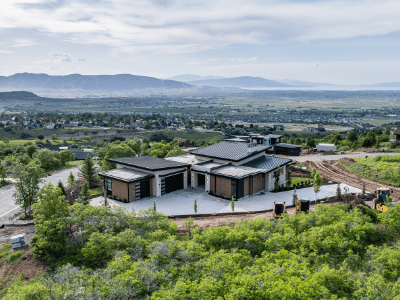
There has never been a better time to make Summit Creek and Utah your home. In fact, Utah is considered the second-happiest state in the U.S. (behind Hawaii)—perhaps, partly thanks to the state’s economic advantages. From business incentives and job markets to school funding and income taxes, a lot goes into evaluating a state’s economy and, according to the Wall Street Journal, Utah “has its house in order.” Beyond drawing travelers to Utah’s scenic natural landscape, abundant with dramatic mountain ranges, national parks and outdoor recreational opportunities, our beloved state remains economically competitive thanks to the host of factors found below.
Lower Income Inequality
For the second year in a row, Utah has shown the lowest score on the GINI Index, which is essentially a measure of the distribution of wealth in a U.S. state. This means, financially, there is more equality among Utahns than any other state. Compared to places like the Los Angeles metropolitan area—which is, simultaneously, home to some of the richest and the poorest people in the world—Utah is much more balanced.
High Job Growth
From 2018 to 2019, Utah saw a significant decrease in its unemployment rate, which is now among the lowest in the country. This is largely due to the creation of over 54,000 new jobs across the state. Job growth not only benefits existing residents; it also fuels migration from other states and places, thus boosting the economy.
Strategic Taxing and Spending of Tax Dollars
First, Utah has a low, flat-rate income and corporate tax that falls below 5%. The state has also been erasing public pension liabilities, freeing up tax dollars to fund schools, emergency services, hospitals, and transportation.
Favorable Demographics
Young people are good for the economy. They hold and create new jobs, they have children, they buy property, etc. And Utah’s low tax rates and stable job market is attracting young people from other states—which is, in turn, great for the economy.






